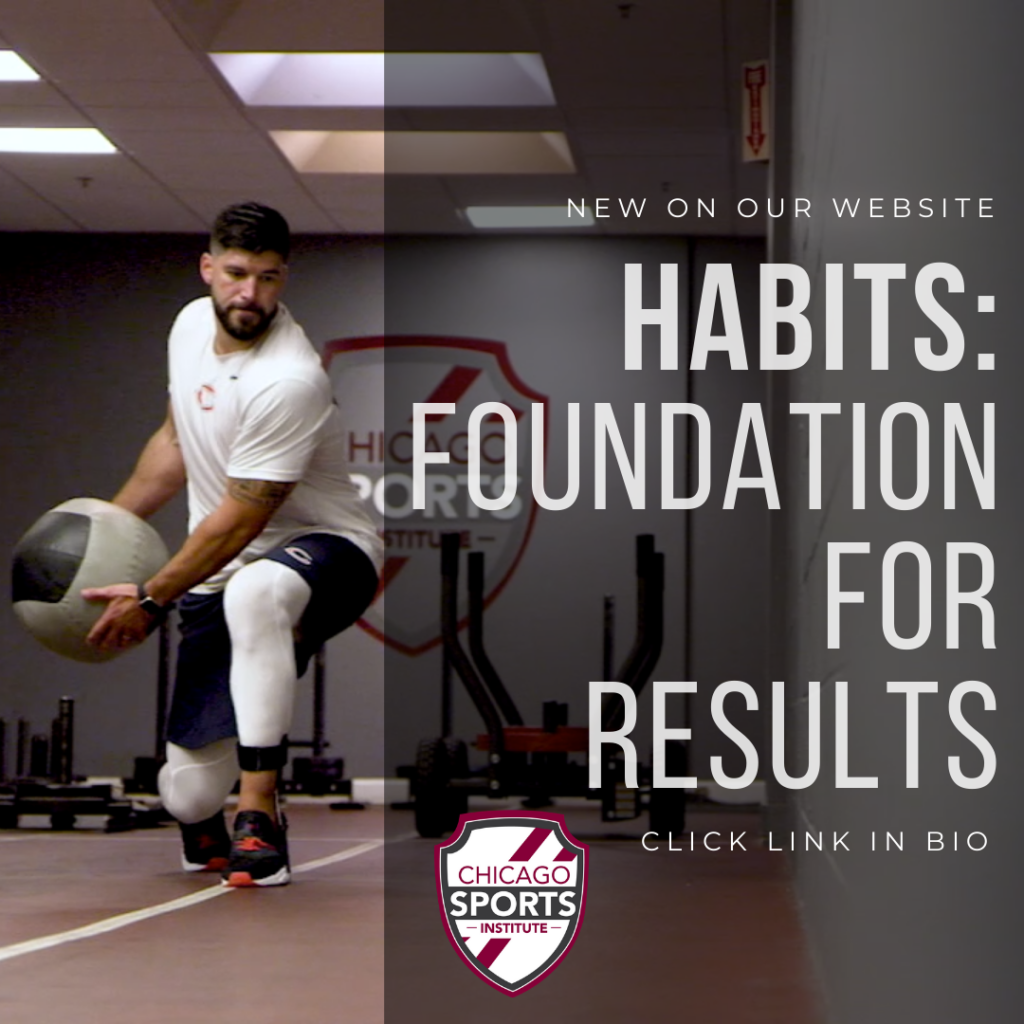
by John Baker
Pick up any fitness magazine, or go to any popular fitness website and you will likely find an article or two about habits. It may be titled, “5 Daily Habits of Incredibly Fit People,” or “7 Practices to Cultivate a Shredded Physique.” People who have no relation to our lives, or have any understanding about how we live, or the things we have going on, like to share their opinions about the manner in which we should conduct ourselves in public and behind closed doors. In summation, people love to talk about habits. You should be doing this, or you should be doing that. You should, you should, you should… The horse has been beaten and dead for quite some time now in my opinion.
What I am not saying is that habits aren’t important, on the contrary, I think habits can make or break success in any faction of our lives. However, the way in which we go about addressing and constructing habits needs to change to ensure long-term success and personal satisfaction throughout the process. We often fail from the inception of habits because we start at the ideal, or the end of the process and work our way backwards. For example, we begin with the notion that I want to have six-pack abs and formulate a plan on how we think we can get there. With the best of intentions and armed with the best scientific data available to us, we program the most nuanced diet and training regimen, constructed with every detail in mind, confident we have addressed every possible element, and our success is ensured. The issue is, that if achieving our ideals were this easy, everyone would be walking around looking like an Adonis. Ultimately, however, we fail for the reasons I will soon address, and we will likely be feeling somewhat depressed because we will not be satisfied with our appearance (even if we made great strides from our starting point) because the whole time we haven’t been focusing on ourselves, but rather us versus our ideals. We’ve become fitness idol worshippers of sorts. When we start with the goal and work backward we are formulating a plan based on what we think we should be (a scientific algorithm dictated by an un-humanistic formula that doesn’t take into account our reality and all its variables).
We need to start at the other end of the habit spectrum. We need to first evaluate our past and ourselves so we can gain insight. We need to gain insight on how we got to where we are at in the first place. We need to first understand the game and its rules so we can create a game plan, not the other way around. Ultimately, your willpower to override your natural tendencies will exhaust. To truly change we need to develop an understanding of the underpinnings of our current habits, and in doing so we find a simplistic road map that charts the way to our goals. A sailboat captain doesn’t force the sailboat to move by sheer force of will and strength, on the contrary, he studies the winds and the mechanisms behind sailing. In doing so, all he has to do is position the sails in such a way that he catches the wind and effortlessly glides across the sea to his destination.
If I say that I want to get in shape, but hate the process, I may be able to coax myself into ‘doing the right things’ for awhile. If I don’t enjoy the process, however, I simply won’t continue long term. I need to ask myself, why don’t I like it? Do I not like it because it’s hard? What does hard mean? Does hard mean the gym is far away from my house and I don’t have time? Does it mean I feel uncomfortable at the gym? Is it hard because I don’t know how to structure a workout? Is the burning sensation I get in my muscles what makes it hard? Perhaps it’s the financial strain of hiring a professional that is making it hard? What hard means to me is different than what hard means to you. What worked to solve my hard may be miles away from what you need to solve your hard. Once we understand what our hard is we can break it down further. Going deeper and deeper, layer-by-layer we divulge the story of our actions and interworking factors that have dictated the habits of our past and will dictate the habits of our future. Whatever ‘it’ is that is holding you back from changing your habits, you must find it. You must find the reason why you’re doing what you’ve been doing, ultimately revealing your barrier to success. There is no one size fits all formula here. If you apply the solution of my barrier to success to yourself it’s not going to work because it was created based on a completely different set of prerequisite issues.
There is no need to white knuckle change. Change should come naturally as part of our natural growth and development. It may be difficult to uncover the real reason behind our failure, but when we do we have allowed ourselves to position our sails in the trade winds of change, our boat pointed towards success. We need habits, positive habits, if we are to succeed in our goals. We need to ensure success not by working from our ideal to the present, but by looking into our past and then applying that to our future. In the latter situation, we become versed in the laws that govern the games we play with ourselves, the smoke and mirrors that dictate the stories of our lives, and understand what we, as individuals, need for our success, not what some guy on the Internet or in the magazines needed for his.
